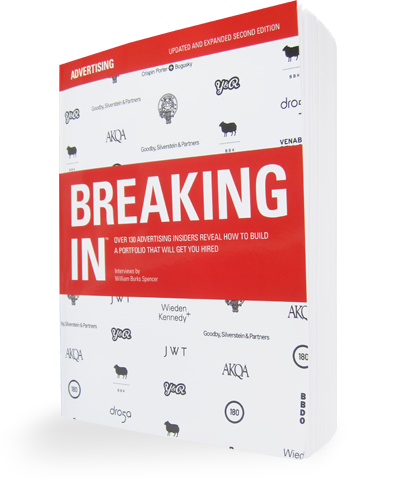In case you missed it, check out some great work from Eric Silver.
WS: What do you look for in a student book? And what impresses you?
ES: Something that displays a unique way of thinking. Creative directors at “creative agencies”—and there are not that many—see tons of books every day and, unfortunately, many of them start to look alike. Perhaps because ad schools are teaching with the same methodology or perhaps because ad annuals and award shows tend to all look similar. The truth is even just one brilliant campaign can lead to a hire.
[ … ]
WS: What do you think about including “non-ads” in a book?
ES: Again, it’s subjective. For me personally, “non ads” will go further than any advertising that’s in a portfolio. Again, the job of the applicant is to set themselves apart from the competition by any means necessary. When I was hired at Wieden in Portland, I had a decent book but Dan Wieden hired me based on a comic strip I worked on called “Smear.”
WS: How did you get into the business?
ES: I went to one year of law school and then did a clerkship in Los Angeles. During that job I was reading a statute and just couldn’t digest it. It dawned on me that I had zero aptitude or interest in my chosen profession. So I quit that day and started working on a portfolio. I always loved the idea of being able to create mini-movies. It’s a career perfectly suited for my attention deficit.
I took my first advertising job at a day rate of $25 a day. It’s very hard to get that first gig but, like any profession, it’s on the job that you’ll really learn the craft. So it’s critical that you start out at a great agency with smart mentors who will steer you in the right direction. It’s cliché, but don’t worry about money when you first start out.
WS: Do you have any tips for someone who wants to get into advertising?
ES: I would study all of the advertising annuals you can get your hands on. You should at least be familiar with all the work that has been done previously. Once you’ve done that…then forget it all. Go about the business of charting brilliant new avenues.

One Response